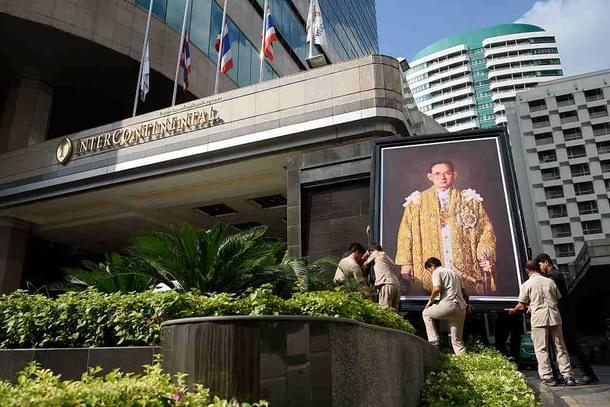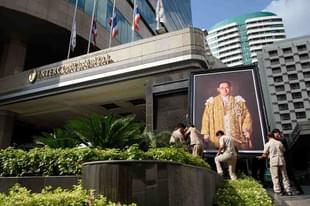Insta
Thailand Should Be Cautious As The Passing Of Its King Could Trigger Economic Instability
Swarajya Staff
Oct 15, 2016, 04:05 PM | Updated 04:05 PM IST
Save & read from anywhere!
Bookmark stories for easy access on any device or the Swarajya app.


After the death of Thailand’s long-reigning King Bhumibol Adulyadej on Thursday (13 October), the country’s stock market and currency plummeted. The king was regarded as a unifying figure within Thailand’s persistent political disorder and a catalyst for its economic stability. Thailand’s currency was trading at 35.69 baht to the US dollar on Thursday. It fell 1.1 per cent on Wednesday (12 October) and 0.2 per cent on Thursday.
The Eurasia Group reported that his passing could cause the general election, which is scheduled for 2017, to be pushed to 2018. However, the overall impact on the business environment would likely be restricted to a 100-day period of mourning that will follow his death.
Though most analysts anticipate Thailand’s transition to be a stable one, the country does remain susceptible to political upheavals. In the past, certain disturbances have injured the country’s economy.
In a recent report, Krystal Tan and Gareth Leather of Capital Economics wrote:
The lack of investment is undermining the economy’s future productive capacity. The bottom line is that it is difficult to be upbeat about Thailand’s medium-term outlook until the political picture becomes clearer.





